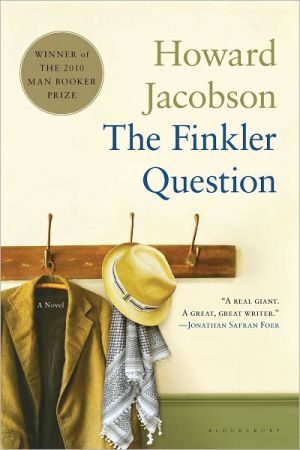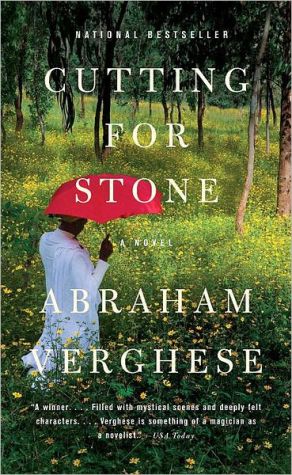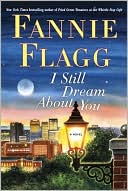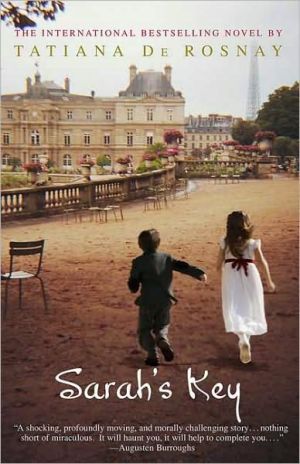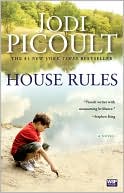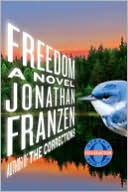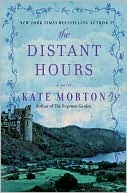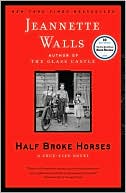The Finkler Question
Winner of the 2010 Man Booker Prize\ Julian Treslove, a professionally unspectacular former BBC radio producer, and Sam Finkler, a popular Jewish philosopher, writer, and television personality, are old school friends. Despite a prickly relationship and very different lives, they've never lost touch with each other, or with their former teacher, Libor Sevcik.\ Dining together one night at Sevcik's apartment—the two Jewish widowers and the unmarried Gentile, Treslove—the men share a sweetly...
Search in google:
Winner of the Man Booker Prize 2010 "He should have seen it coming. His life had been one mishap after another. So he should have been prepared for this one…" Julian Treslove, a professionally unspectacular former BBC radio producer, and Sam Finkler, a popular Jewish philosopher, writer and television personality, are old school friends. Despite a prickly relationship and very different lives, they've never quite lost touch with each other—or with their former teacher, Libor Sevcik, a Czech always more concerned with the wider world than with exam results. Now, both Libor and Finkler are recently widowed, and with Treslove, his chequered and unsuccessful record with women rendering him an honorary third widower, they dine at Libor's grand, central London apartment. It's a sweetly painful evening of reminiscence in which all three remove themselves to a time before they had loved and lost; a time before they had fathered children, before the devastation of separations, before they had prized anything greatly enough to fear the loss of it. Better, perhaps, to go through life without knowing happiness at all because that way you have less to mourn? Treslove finds he has tears enough for the unbearable sadness of both his friends' losses. And it's that very evening, at exactly 11:30 pm, as Treslove, walking home, hesitates a moment outside the window of the oldest violin dealer in the country, that he is attacked. And after this, his whole sense of who and what he is will slowly and ineluctably change. The Finkler Question is a scorching story of friendship and loss, exclusion and belonging, and of the wisdom and humanity of maturity. Funny, furious, unflinching, this extraordinary novel shows one of our finest writers at his brilliant best.The Barnes & Noble ReviewAlthough strong positions on Israel, Zionism, and anti-Semitism comprise the bulk of this talky book, they are expressed through characters who each, eventually, change their minds. More impressively, behind these characters it is impossible to find any puppet master. You cannot deduce an authorial stance, only evidence of a frighteningly smart and insightful thinker and stylist. Jacobson -- an established British author who has been terribly under-known this side of the pond -- has written a brave book. Even more welcome, he has written a seriously funny one.
THE FINKLER QUESTION\ A Novel \ \ By Howard Jacobson \ BLOOMSBURY\ Copyright © 2010 Howard Jacobson\ All right reserved.\ ISBN: 978-1-60819-642-5 \ \ \ Chapter One\ 1 \ He should have seen it coming.\ His life had been one mishap after another. So he should have been prepared for this one.\ He was a man who saw things coming. Not shadowy premonitions before and after sleep, but real and present dangers in the daylit world. Lamp posts and trees reared up at him, splintering his shins. Speeding cars lost control and rode on to the footpath leaving him lying in a pile of torn tissue and mangled bones. Sharp objects dropped from scaffolding and pierced his skull.\ Women worst of all. When a woman of the sort Julian Treslove found beautiful crossed his path it wasn't his body that took the force but his mind. She shattered his calm.\ True, he had no calm, but she shattered whatever calm there was to look forward to in the future. She was the future.\ People who see what's coming have faulty chronology, that is all. Treslove's clocks were all wrong. He no sooner saw the woman than he saw the aftermath of her — his marriage proposal and her acceptance, the home they would set up together, the drawn rich silk curtains leaking purple light, the bed sheets billowing like clouds, the wisp of aromatic smoke winding from the chimney — only for every wrack of it — its lattice of crimson roof tiles, its gables and dormer windows, his happiness, his future — to come crashing down on him in the moment of her walking past.\ She didn't leave him for another man, or tell him she was sick of him and of their life together, she passed away in a perfected dream of tragic love — consumptive, wet-eyelashed, and as often as not singing her goodbyes to him in phrases borrowed from popular Italian opera.\ There was no child. Children spoilt the story.\ Between the rearing lamp posts and the falling masonry he would sometimes catch himself rehearsing his last words to her — also as often as not borrowed from the popular Italian operas — as though time had concertinaed, his heart had smashed, and she was dying even before he had met her.\ There was something exquisite to Treslove in the presentiment of a woman he loved expiring in his arms. On occasions he died in hers, but her dying in his was better. It was how he knew he was in love: no presentiment of her expiry, no proposal.\ That was the poetry of his life. In reality it had all been women accusing him of stifling their creativity and walking out on him.\ In reality there had even been children.\ But beyond the reality something beckoned.\ On a school holiday in Barcelona he paid a gypsy fortune-teller to read his hand.\ 'I see a woman,' she told him.\ Treslove was excited. 'Is she beautiful?'\ 'To me, no,' the gypsy told him. 'But to you ... maybe. I also see danger.'\ Treslove was more excited still. 'How will I know when I have met her?'\ 'You will know.'\ 'Does she have a name?'\ 'As a rule, names are extra,' the gypsy said, bending back his thumb. 'But I will make an exception for you because you are young. I see a Juno — do you know a Juno?'\ She pronounced it 'Huno'. But only when she remembered.\ Treslove closed one eye. Juno? Did he know a Juno? Did anyone know a Juno? No, sorry, no, he didn't. But he knew a June.\ 'No, no, bigger than June.' She seemed annoyed with him for not being able to do bigger than June. 'Judy ... Julie ... Judith. Do you know a Judith?'\ Hudith.\ Treslove shook his head. But he liked the sound of it — Julian and Judith. Hulian and Hudith Treslove.\ 'Well, she's waiting for you, this Julie or Judith or Juno ... I do still see a Juno.'\ Treslove closed his other eye. Juno, Juno ...\ ' How long will she wait?' he asked.\ 'As long as it takes you to find her.' Treslove imagined himself looking, searching the seven seas. 'You said you see danger. How is she dangerous?'\ He saw her rearing up at him, with a knife to his throat — Addio, mio bello, addio.\ 'I did not say it was she who was dangerous. Only that I saw danger. It might be you who is dangerous to her. Or some other person who is dangerous to both of you.'\ 'So should I avoid her?' Treslove asked.\ She shuddered a fortune-teller's shudder. 'You cannot avoid her.'\ She was beautiful herself. At least in Treslove's eyes. Emaciated and tragic with gold hooped earrings and a trace, he thought, of a West Midlands accent. But for the accent he would have been in love with her.\ She didn't tell him anything he didn't already know. Someone, something, was in store for him.\ Something of more moment than a mishap.\ He was framed for calamity and sadness but was always somewhere else when either struck. Once, a tree fell and crushed a person walking just a half a yard behind him. Treslove heard the cry and wondered whether it was his own. He missed a berserk gunman on the London Underground by the length of a single carriage. He wasn't even interviewed by the police. And a girl he had loved with a schoolboy's hopeless longing — the daughter of one of his father's friends, an angel with skin as fine as late-summer rose petals and eyes that seemed forever wet — died of leukaemia in her fourteenth year while Treslove was in Barcelona having his fortune told. His family did not call him back for her final hours or even for the funeral. They did not want to spoil his holiday, they told him, but the truth was they did not trust his fortitude. People who knew Treslove thought twice about inviting him to a deathbed or a burial.\ So life was still all his to lose. He was, at forty-nine, in good physical shape, had not suffered a bruise since falling against his mother's knee in infancy, and was yet to be made a widower. To his knowledge, not a woman he had loved or known sexually had died, few having stayed long enough with him anyway for their dying to make a moving finale to anything that could be called a grand affair. It gave him a preternaturally youthful look — this unconsummated expectation of tragic event. The look which people born again into their faith sometimes acquire.\ 2\ It was a warm late-summer's evening, the moon high and skittish. Treslove was returning from a melancholy dinner with a couple of old friends, one his own age, one much older, both recently made widowers. For all the hazards of the streets, he had decided to walk a little around a part of London he knew well, mulling over the sadness of the night in retrospect, before taking a cab home.\ A cab, not a Tube, though he lived only a hundred yards from a Tube station. A man as fearful as Treslove of what might befall him above ground was hardly going to venture beneath it. Not after the close shave with the gunman.\ 'How unutterably sad,' he said, not quite aloud. He meant the death of his friends' wives and the death of women generally. But he was also thinking of the men who had been left alone, himself included. It is terrible to lose a woman you have loved, but it is no less a loss to have no woman to take into your arms and cradle before tragedy strikes ...\ 'Without that, what am I for?' he asked himself, for he was a man who did not function well on his own.\ He passed the BBC, an institution for which he had once worked and cherished idealistic hopes but which he now hated to an irrational degree. Had it been rational he would have taken steps not to pass the building as often as he did. Under his breath he cursed it feebly — 'Shitheap,' he said.\ A nursery malediction.\ That was exactly what he hated about the BBC: it had infantilised him. 'Auntie', the nation called the Corporation, fondly. But aunties are equivocal figures of affection, wicked and unreliable, pretending love only so long as they are short of love themselves, and then off. The BBC, Treslove believed, made addicts of those who listened to it, reducing them to a state of inane dependence. As it did those it employed. Only worse in the case of those it employed — handcuffing them in promotions and conceit, disabling them from any other life. Treslove himself a case in point. Though not promoted, only disabled.\ There were cranes up around the building, as high and unsteady as the moon. That would be a shapely fate, he thought: as in my beginning, so in my end — a BBC crane dashing my brains out. The shitheap. He could hear the tearing of his skull, like the earth's skin opening in a disaster movie. But then life was a disaster movie in which lovely women died, one after another. He quickened his pace. A tree reared up at him. Swerving, he almost walked into a fallen road mender's sign. DANGER. His shins ached with the imagined collision. Tonight even his soul shook with apprehension.\ It's never where you look for it, he told himself. It always comes from somewhere else. Whereupon a dark shadow materialised from a doorway into an assailant, took him by the neck, pushed him face first against a shop window, told him not to shout or struggle, and relieved him of his watch, his wallet, his fountain pen and his mobile phone.\ It was only when he had stopped shaking and was able to check his pockets and find them emptied that he could be certain that what had happened had happened in reality.\ No wallet, no mobile phone. In his jacket pocket no fountain pen. On his wrist no watch. And in himself no fight, no instinct for preservation, no amour de soi, no whatever the word is for the glue that holds a man together and teaches him to live in the present.\ But then when had he ever had that?\ He'd been a modular, bits-and-pieces man at university, not studying anything recognisable as a subject but fitting components of different arts-related disciplines, not to say indisciplines, together like Lego pieces. Archaeology, Concrete Poetry, Media and Communications, Festival and Theatre Administration, Comparative Religion, Stage Set and Design, the Russian Short Story, Politics and Gender. On finishing his studies — and it was never entirely clear when and whether he had finished his studies, on account of no one at the university being certain how many modules made a totality — Treslove found himself with a degree so unspecific that all he could do with it was accept a graduate traineeship at the BBC. For its part — her part — all the BBC could do with Treslove when she got him was shunt him into producing late-night arts programmes for Radio 3.\ He felt himself to be a stunted shrub in a rainforest of towering trees. All around him other trainees rose to startling eminence within weeks of their arriving. They shot up, because there was no other direction you could go but up, unless you were Treslove who stayed where he was because no one knew he was there. They became programme controllers, heads of stations, acquisitors, multi-platform executives, director generals even. No one ever left. No one was ever fired. The Corporation looked after its own with more fierce loyalty than a family of mafiosi. As a consequence everyone knew one another intimately — except Treslove who knew no one — and spoke the same language — except Treslove, who spoke a language of loss and sorrow nobody understood.\ 'Cheer up, people would say to him in the canteen. But all that did was make him want to cry. Such a sad expression, 'Cheer up'. Not only did it concede the improbability that he ever would cheer up, it accepted that there could be nothing much to cheer up for if cheering up was all there was to look forward to.\ He was reprimanded on an official letterhead by someone from the Creative Board — he didn't recognise the complainant s name — for addressing too many morbid issues and playing too much mournful music on his programme. 'That's the province of Radio 3,' the letter concluded. He wrote back saying his programme was on Radio 3. He received no reply.\ After more than a dozen years roaming the ghostly corridors of Broadcasting House in the dead of night, knowing that no one was listening to anything he produced — for who, at three o'clock in the morning, wanted to hear live poets discussing dead poets, who might just as well have been dead poets discussing live poets? — he resigned. 'Would anyone notice if my programmes weren't aired? he wrote in his letter of resignation. 'Would anyone be aware of my absence if I just stopped turning up?' Again he received no reply.\ Auntie wasn't listening either.\ He answered an advertisement in a newspaper for an assistant director of a newly launched arts festival on the south coast. 'Newly launched meant a school library which had no books in it, only computers, three visiting speakers and no audience. It reminded him of the BBC. The actual director rewrote all his letters in simpler English and did the same with his conversation. They fell out over the wording of a brochure.\ 'Why say exhilarating when you can say sexy?' she asked him.\ 'Because an arts festival isn't sexy.'\ 'And you want to know why that is? Because you insist on using words like exhilarating.'\ 'What s wrong with it?'\ 'It s indirect language.'\ 'There s nothing indirect about exhilaration.'\ 'There is the way you say it.' 'Could we try for a compromise with exuberance?' he asked, without any.\ 'Could we try for a compromise with you getting another job?'\ They had been sleeping together. There was nothing else to do. They coupled on the gymnasium floor when no one turned up to their festival. She wore Birkenstocks even during lovemaking. He only realised he loved her when she sacked him.\ Her name was Julie and he only noticed that when she sacked him, too.\ Hulie.\ Thereafter he gave up on a career in the arts and filled a succession of unsuitable vacancies and equally unsuitable women, falling in love whenever he took up a new job, and falling out of love — or more correctly being fallen out of love with — every time he moved on. He drove a removal van, falling in love with the first woman whose house he emptied, delivered milk in an electric float, falling in love with the cashier who paid him every Friday night, worked as an assistant to an Italian carpenter who replaced sash windows in Victorian houses and replaced Julian Treslove in the affections of the cashier, managed a shoe department in a famous London store, falling in love with the woman who managed soft furnishings on the floor above, finally finding semi-permanent and ill-paid occupation with a theatrical agency specialising in providing doubles of famous people for parties, conferences and corporate events. Treslove didn't look like anybody famous in particular, but looked like many famous people in general, and so was in demand if not by virtue of verisimilitude, at least by virtue of versatility.\ And the soft-furnishings woman? She left him when he became the double of no one in particular. 'I don t like not knowing who you're meant to be,' she told him. 'It reflects badly on us both.'\ 'You choose,' he said.\ 'I don t want to choose. I want to know. I crave certainty. I need to know you re going to be there through thick and thin. I work with fluff all day. When I come home I want something solid. It's a rock I need, not a chameleon.'\ She had red hair and angry skin. She heated up so quickly Treslove had always been frightened to get too near to her.\ 'I am a rock,' he insisted, from a distance. 'I will be with you to the end.'\ 'Well, you re right about that at least,' she told him. 'This is the end. I'm leaving you.'\ 'Just because I'm in demand?'\ 'Because you re not in demand with me.'\ 'Please don t leave. If I wasn't a rock before, I'll be a rock from now on.'\ 'You won't. It isn't in your nature.'\ 'Don't I look after you when you're ill?'\ 'You do. You're marvellous to me when I'm ill. It's when I'm well that you're no use.'\ (Continues...)\ \ \ \ \ Excerpted from THE FINKLER QUESTION by Howard Jacobson Copyright © 2010 by Howard Jacobson. Excerpted by permission of BLOOMSBURY. All rights reserved. No part of this excerpt may be reproduced or reprinted without permission in writing from the publisher.\ Excerpts are provided by Dial-A-Book Inc. solely for the personal use of visitors to this web site. \ \
\ Publishers WeeklyStarred Review. \ Winner of the 2010 Man Booker Prize, Jacobson's wry, devastating novel examines the complexities of identity and belonging, love, and grief through the lens of contemporary Judaism. Julian Treslove, a former BBC producer who works as a celebrity double, feels out of sync with his longtime friend and sometimes rival Sam Finkler, a popular author of philosophy-themed self-help books and a rabidly anti-Zionist Jewish scholar. The two have reconnected with their elderly professor, Libor Sevcik, following the deaths of Finkler and Libor's wives, leaving Treslove-the bachelor Gentile-even more out of the loop. But after Treslove is mugged-the crime has possible anti-Semitic overtones-he becomes obsessed with what it means to be Jewish, or "a Finkler." Jacobson brilliantly contrasts Treslove's search for a Jewish identity-through food, spurts of research, sex with Jewish women-with Finkler's thorny relationship with his Jewish heritage and fellow Jews. Libor, meanwhile, struggles to find his footing after his wife's death, the intense love he felt for her reminding Treslove of the belonging he so craves. Jacobson's prose is effortless-witty when it needs to be, heartbreaking where it counts-and the Jewish question becomes a metaphor without ever being overdone.\ (c) Copyright PWxyz, LLC. All rights reserved.\ \ \ \ \ \ From the PublisherWinner of the 2010 Man Booker Prize\ \ “Like all of [Jacobson’s] work, The Finkler Question has a kind of energy that you have to look at through your fingers, like an eclipse. As the brightness of his brilliance is hard to look at, so is the darkness of his humor. I don't know a funnier writer alive.”—Jonathan Safran Foer\ \ "Like Phillip Roth, to whom he is fairly compared, Howard Jacobson is a magnificent prose stylist who is often at his most serious when he is being uproariously funny. This novel, which won the Man Booker Prize this year, is both a send-up of some very silly people, and an examination of Jewish identity in relation to rising tides of anti-Zionism and anti-Semitism. I don't think you have to be Jewish to find it funny, touching, and troubling.”—Jacob Weisberg, Slate, "Best Books of 2010"\ \ “Mr. Jacobson doesn’t just summon [Philip] Roth; he summons Roth at Roth’s best. This prizewinning book is a riotous morass of jokes and worries about Jewish identity, though it is by no means too myopic to be enjoyed by the wider world. It helps that Mr. Jacobson’s comic sensibility suggests Woody Allen’s, that his powers of cultural observation are so keen, and that influences as surprising as Lewis Carroll shape this book… Even in its darkest moments The Finkler Question offers many examples of… the most pernicious and authentic strain of Jewish humor: the kind that’s so real it isn’t funny at all.”—New York Times\ \ “A striking novel and a subtle one… The Finkler Question has all the qualities we expect from Mr. Jacobson—especially a mordant wit, sometimes as acrid as it is exuberant. He has been called the English Philip Roth, and it is true that the two authors have in common a white-hot indignation, at anti-Semitism and much else... With The Finkler Question, Mr. Jacobson has managed to channel his themes and his characters' emotions... with nuance, insight and, yes, laughter.”—Wall Street Journal, Best Books of 2010\ “The Finkler Question tackles an uncomfortable issue [Jewish identity] with satire that is so biting, so pointed, that it pulls you along for 300 pages and leaves a battlefield of sacred cows in its wake… Like all great Jewish art… it is Jacobson’s use of the Jewish experience to explain the greater human one that sets it apart…It’s a must read, no matter what your background.”—National Public Radio\ “Rare is a work of fiction that takes on the most controversial issues facing Jews so directly—and with enough humor, intelligence, and insight—that it changes a reader’s mind or two. Be warned: The Finkler Question will probably distress you on its way to disarming you. Can we pay a novel any greater compliment?”—Barnes & Noble Review\ “Let’s hope that this recognition for The Finkler Question... gets Jacobson the recognition he deserves—not as a comic novelist, or a Jewish novelist, or a British Philip Roth—but on his own terms.”—New Yorker "Book Bench"\ “The Finkler Question, a clever, canny, textured, subtle, and humane novel exploring the friendship of three ageing male friends…is a work of greatness… Although The Finkler Question is by no means a straightforward comic novel, it once again demonstrates Jacobson’s mastery of the form… Jacobson’s capacity to explore the minutiae of the human condition while attending to the metaphysics of human existence is without contemporary peer.”—Daily Beast\ "The acrobatic wit and biting humor Jacobson displayed in Kalooki Nights and The Mighty Walzer is honed sharp in The Finkler Question. Masterfully, Jacobson will bury a joke only to knock you out with a punch line 10 pages later. Though undeniably a comic novel, The Finkler Question. is a tragicomedy, centered on a wayward man whose quest for a self serves as a platform for Jacobson to explore the complexities of British Jewish identity…this is a book of big, rich ideas and, if those ideas sometimes take precedent over plot, it's still a joy being on Treslove's journey and inside Jacobson's head." —San Francisco Chronicle\ \ “The Finkler Question is often awfully funny, even while it roars its witty rage at the relentless, ever-fracturing insanity of anti-Semitism, which threatens to drive its victims a little crazy, too. This is, after all, a comedy that begins and ends in grief.” —Washington Post\ “[A] wry, devastating novel… Jacobson’s prose is effortless—witty when it needs to be, heartbreaking where it counts—and the Jewish question becomes a metaphor without ever being overdone.”—Publishers Weekly, starred review\ “Jacobson uses Julian’s transformation as a way of examining, often with a mordant wit reminiscent of comedian Larry David’s, what it means to be Jewish. Winner of the 2010 Man Booker Prize, this novel also offers poignant insights into the indignities of aging, the competitiveness of male friendship, and the yearning to belong.” —Booklist\ “It is tempting—after reading something as fine as The Finkler Question—not to bother reviewing it in any meaningful sense but simply to urge you to put down this paper and go and buy as many copies as you can carry … Full of wit, warmth, intelligence, human feeling and understanding. It is also beautifully written … Indeed, there’s so much that is first rate in the manner of Jacobson’s delivery that I could write all day on his deployment of language without once mentioning what the book is about.”—Observer (UK)\ “Another masterpiece … The Finkler Question is further proof, if any was needed, of Jacobson’s mastery of humor. But above all it is a testament to his ability to describe—perhaps it would be better to say inhabit—the personal and moral worlds of his disparate characters.”—Times (UK)\ “Howard Jacobson’s latest holler from the halls of comic genius … The opening chapters of this novel boast some of the wittiest, most poignant and sharply intelligent comic prose in the English language … Jacobson’s brilliance thrives on the risk of riding death to a photo-finish, of writing for broke. Exhilaration all the way.”—Scotsman\ “Howard Jacobson [is] a writer able to recognize the humor in almost any situation and a man as expansive as most on the nature of Jewishness.”—Telegraph (UK)\ “This charming novel follows many paths of enquiry, not least the present state of Jewish identity in Britain and how it integrates with the Gentile population. Equally important is its exploration of how men share friendship. All of which is played out with Jacobson’s exceptionally funny riffs and happy-sad refrains … Jacobson’s prose is a seamless roll of blissfully melancholic interludes. Almost every page has a quotable, memorable line.”—Independent on Sunday (UK)\ “Both an entertaining novel and a humane one.”—Financial Times\ “There are some great riffs and skits in The Finkler Question … But at the heart of the book is Julian the wannabe Jew, a wonderful comic creation precisely because he is so tragically touching in his haplessness. The most moving (and funniest) scenes are those in which he and Libor, the widower with nothing more to live for, ruminate on love and Jewishness.”—Sunday Times (UK)\ “[A] bleakly funny meditation on loss, belonging and personal identity.”—Daily Mail (UK)\ “For some writers a thorough investigation of the situation of British Jews today might do as the subject for a single book. In The Finkler Question it’s combined with his characteristically unsparing—but not unkindly—ruminations on love, aging, death and grief. He also manages his customary—but not easy—trick of fusing all of the above with genuine comedy … No wonder that, as with most of Jacobson’s novels, you finish The Finkler Question feeling both faintly exhausted and richly entertained.”—Sunday Telegraph (UK)\ “A terrifying and ambitious novel, full of dangerous shallows and dark, deep water. It takes in the mysteries of male friendship, the relentlessness of grief and the lure of emotional parasitism.”—Guardian (UK)\ “The Finkler Question balances precariously a bleak moralizing with life-affirming humor.”—Independent (UK)\ “Jacobson writes perceptively about how durable friendships are compounded, in large part, of envy, schadenfreude and betrayal.”—Literary Review (UK)\ “The Finkler Question is very funny, utterly original, and addresses a topic of contemporary fascination … The writing is wonderfully mobile, and inventive, and Jacobson’s signature is to be found in every sentence … The Finkler Question is a remarkable work.”—Anthony Julius, Jewish Chronicle\ “Jacobson is at the height of his powers … As the men tussle with women and their absence, and their own identities, Jacobson’s wit launches a fusillade of hard-punching aperçus on human nature and its absurdities that only he could have written.”—Metro (UK)\ “The Finkler Question, which is as provocative as it is funny, as angry as it is compassionate, offers a moving testimony to a dilemma as ancient as the Old Testament. It also marks another memorable achievement for Jacobson, a writer who never fires blanks and whose dialogue, which reads like an exchange between Sigmund Freud and Woody Allen, races along like a runaway train.”—Herald Scotland\ “Here are three men who are in varying ways miserably womanless. This is rich soil for comedy, and Jacobson tills it for every regretful laugh he can muster … Perhaps [Jacobson’s] Leopold Bloom time has come at last.”—Irish Independent\ “The Finkler Question is characterized by [Jacobson’s] structuring skill and unsimplifying intelligence—this time picking through the connections and differences, hardly unremarked but given fresh treatment here, between vicariousness and parasitism, and between Jewishness, Judaism and Zionism.”—New Statesman\ “Full of caustic moments … that are also, essentially, funny … No matter the book’s themes, the way Jacobson weds humor to seriousness makes it affecting for anyone.”—Jewish Week\ \ \ \ \ Library Journal[star]In tribute to his childhood pal, Samuel Finkler, Julian Treslove, a former BBC arts producer, has always privately thought of Jews as Finklers. Now in late middle age, Treslove and Finkler have remained friends and have also stayed close to their former history teacher and bon vivant, the nonagenarian Libor Sevick, another Jew. After a night out with his two old friends, Treslove is mugged by a female assailant who says something to him that sounds at first like, "Your jewels," but that he later interprets to be, "You Jew." This life-defining moment sparks an identity crisis, one in which Treslove, who has always been the envious outsider, comes to believe he might actually be Jewish. At the same time, Finkler, a widely regarded and well-known philosopher, joins the ranks of a group called "ASHamed," Jews who distance themselves from the Israeli cause in sympathy for the Palestinians. Just as an outbreak of violent anti-Semitic incidents causes Finkler to rethink his alliance with ASHamed, Treslove falls in love with Sevick's niece and becomes deeply immersed in Jewish studies.Verdict The novel's underlying question is: Can you choose to be Jewish or can you choose not to be? This Man Booker Prize nominee is as entertaining as it is provocative and will be essential reading for thoughtful readers on either side of the debate. Highly recommended.—Barbara Love, Kingston Frontenac P.L., Kingston, Ont.\ (c) Copyright 2010. Library Journals LLC, a wholly owned subsidiary of Media Source, Inc. No redistribution permitted.\ \ \ \ \ \ Kirkus ReviewsElegiac—but also humorous—meditation on life's big questions: life, death, the nature of justice, whether to sleep with a German. The book won the 2010 Man Booker Prize.\ Nearing the end of his 60s, Jacobson, who has likened himself to a "Jewish Jane Austen," is a very funny man. His lead character, a London media type named Julian Treslove, is not Jewish, but he might as well be: He has a Woody Allen–size complex of neuroses and worries, and "his life had been one mishap after another." Mugged by a woman who utters a mysterious syllable—"Ju," Treslove thinks—while going through his pockets, he finds himself about as angst-ridden as an angst-ridden person can be. His widower friends Finkler and Libor, great successes in their day, are no pikers in the angst department, though, lonely and full of the usual aches and veys; as Treslove notes, "A man without a wife can be lonely in a big black Mercedes, no matter how many readers he has." The three pass their days together gnawing various questions to the bone, not least whether, in the post-Holocaust days, it is possible to "contemplate having an affair with someone who looked German." (Consensus: No, even if that someone was Marlene Dietrich.) When Libor's great-niece, Hephzibah, sweeps into the picture, Treslove finds himself thinking much more about questions of the heart, even as Finkler, a writer of pop philosophy, is swept away in a flood of "ASHamed Jews" who "were not to blame for anything" but were in the thick of controversy all the same—for, Finkler sighs, the very word "Jew" (was that what Treslove's attacker was saying?) is "a password to madness...One little word with no hiding place for reason in it."Jacobson's gentle tale of urban crises of the soul slowly turns into an examination of anti-Semitism, of what it means to be Jewish in a time when "the Holocaust had become negotiable."\ At turns a romp and a disquisition worthy of Maimonides; elegantly written throughout, and with plenty of punchlines too.\ \ \ \ \ \ Janet MaslinMr. Jacobson doesn't just summon [Philip] Roth; he summons Roth at Roth's best. This prizewinning book is a riotous morass of jokes and worries about Jewish identity, though it is by no means too myopic to be enjoyed by the wider world. It helps that Mr. Jacobson's comic sensibility suggests Woody Allen's, that his powers of cultural observation are so keen, and that influences as surprising as Lewis Carroll shape this book.\ —The New York Times\ \ \ \ \ Ron CharlesAlthough there is a plot, The Finkler Question is really a series of tragicomic meditations on one of humanity's most tenacious expressions of malice, which I realize sounds about as much fun as sitting shiva, but Jacobson's unpredictable wit is more likely to clobber you than his pathos. In these pages, he's refined the funny shtick of Kalooki Nights (2007) to produce a more cerebral comedy about the bizarre metastasis of anti-Semitism and the exhausting complications of Zionism.\ —The Washington Post\ \ \ \ \ The Barnes & Noble ReviewWhen you begin reading Howard Jacobson's The Finkler Question -- just announced as this year's winner of the Man Booker Prize -- you may worry that you are headed into a polemic disguised as a novel. The characters spend a lot of time talking about Gaza, swastikas, and "never forgetting." As you keep reading, however, the brilliance of the book comes clear: Jacobson is using the novel form precisely in order to help us limn these polarizing issues through the consciousness of a flawed character as an excuse, freeing himself -- and us -- from the conventions of argumentation .\ Although strong positions on Israel, Zionism, and anti-Semitism comprise the bulk of this talky book, they are expressed through characters who each, eventually, change their minds. More impressively, behind these characters it is impossible to find any puppet master. You cannot deduce an authorial stance, only evidence of a frighteningly smart and insightful thinker and stylist. Jacobson -- an established British author who has been terribly under-known this side of the pond -- has written a brave book. Even more welcome, he has written a seriously funny one.\ Jacobson exploits the non-threatening veneer of a novel -- "it's just a story" -- to make fun of everybody, defusing with an appealing lightness the heady political discussions the characters cannot stop themselves from having. "'I wonder whether we feel nothing,'" says a main character about Jews, "'precisely because we rehearse our feelings on the subject too freely and too often?'" "'Crying Wolfowitz, you mean?'" responds another character, "with a wild laugh."\ The novel revolves around Julian Treslove, a former BBC producer turned celebrity look-alike. Treslove is a textbook Romantic: he longs for an Ophelia, a lover who will die young and beautiful, so he can mourn her. His daydreams end this way: "The curtain always came down on Treslove's fantasy of happiness with him crying 'Mimi!' or 'Violetta!' and kissing the cold dead lips a last goodbye that would leave him inconsolable for ever." It's not much of a surprise that Treslove has never married, but has instead been involved with a string of women whose names all begin with "Ju" (or, as he later wonders, "Jew"), the only syllable he could hear a psychic utter when he had his romantic fortunes foretold .\ Julian Treslove (or, perhaps, "Jewlian Very Love") was childhood friends with Sam Finkler. Finkler was the first Jew Treslove ever met, and Finkler did not quite live up to the stereotype. Then, "he supposed a Jew would be like the word Jew -- small and dark and beetling." The two develop an intensely homosocial relationship straight from the British school-chums genre, but with a twist. For Treslove, Finkler represents the mysterious, desirable Other; he represents Jews, that is. Hence the novel's title: since he first met his first Jew, Treslove has called all Jews Finklers -- but only to himself, wondering and mulling the age-old question of what it means to be Finkler.\ Finkler, meanwhile, grows up to become a hugely successful pop philosopher, writing self-help books such as The Socratic Flirt: How to Reason Your Way into a Better Sex Life. Raised Orthodox, Finkler has fallen away from any faith, and is so anti-Zionist Treslove wonders if he is at heart anti-Semitic. When Finklers's wife, Tyler, a convert, dies young, Finkler mourns -- as Jews always are doing, at least in Treslove's romantic imagination -- but he also feels guilty (perhaps also as Jews are always doing). Finkler was an inconstant, distracted husband, is still a poor father, and spends his nights with zaftig Jewish mistresses or playing online poker. He holds the most outrageous political views in the book, and he is also the least likable member of a cast of characters who, although fascinating, are not always sympathetic. He is the kind of person who, at a restaurant, always asks the waiters for more hot water, "no matter how much hot water had already been brought. It was his way of asserting power, Treslove thought. No doubt Nietzsche, too, ordered more hot water than he needed."\ Finkler is also, of course, very funny. Treslove endlessly and unsuccessfully tries to crack the code of Finkler humor. It is all in wordplay, he concludes, but you also have to time the linguistic cleverness correctly. Poor Waspy Julian's jokes are usually met with confused stares.\ Treslove and Finkler are also linked by a mutual teacher from their childhood, now recently widowed and bereft, named Libor Sevcik, a Czech who has become, of all things, a celebrity journalist. With this trio of lost, mourning men at the center of the story, Jacobson sets himself a tough task. How will a novel in which these men meet, talk, and fight about Gaza be engaging? Somehow Jacobson makes it work, in no small part because it's funny .\ Whenever the three get together, Libor and Finkler debate the state of Israel. Libor always pronounced it, "Isrrrae." Treslove analyzes his pronunciation: "Whenever Libor said the word Israel he sounded the 'r' as though there were three of them and let the 'l' fall away to suggest that the place belonged to the Almighty and he couldn't bring himself fully to pronounce it. Finklers were like that with language, Treslove understood. When they weren't playing with it they were ascribing holy properties to it." Finkler, on the other hand, refuses to pronounce the word at all, calling the country Palestine: he "spit out Israel-associated words like Zionist and Tel Aviv and Knesset as though they were curses."\ Treslove mainly listens and envies the witty, headstrong Finklers. After Finkler and Libor become widowers, Treslove is only more jealous: now they have even greater tragic auras! Finkler, in turn, always competes with Treslove, and perhaps wishing for himself a less troubled past, envies Libor his memories of a better marriage, and therefore his greater share of grief.\ The action that sets the plot into motion is hilariously inconsequential: Treslove is mugged. The improbable consequence is his decision to convert to Judaism. He learns Yiddish, a language Finkler considers "the lost provincial overexpressiveness" of his Orthodox father. He visits a blogger who is trying to grow his foreskin back to discuss circumcision and sexual pleasure. What was his "Jewish thing" really? asks the Jewish woman he falls in love with. "A search for some identity that came with more inwrought despondence than he could manufacture out of his own gene pool? Did he want the whole fucking Jewish catastrophe?"\ With anti-Semitic attacks on the rise in London, Libor also undergoes a change of heart, as all the English Jews find themselves wondering of a swastika here or a smear of bacon grease there, "Was it something or was it nothing?" As the debates migrate from past times or far away places to the streets of the diaspora, the characters all find themselves surprised by their own reactions.\ Rare is a work of fiction that takes on the most controversial issues facing Jews so directly -- and with enough humor, intelligence, and insight -- that it changes a reader's mind or two. Be warned: The Finkler Question will probably distress you on its way to disarming you. Can we pay a novel any greater compliment?\ --Anne Trubek\ \ \
